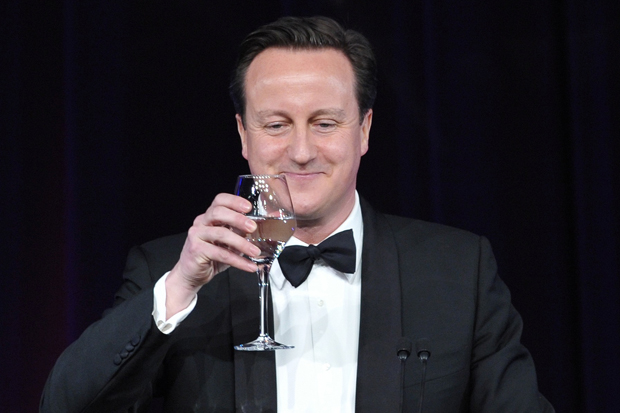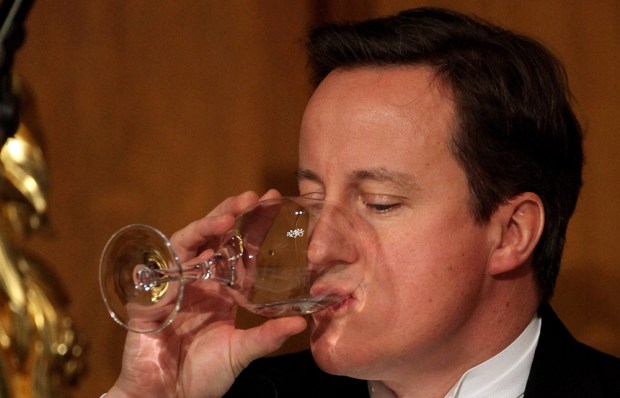Most of my friends are still on a cloud of post-election euphoria. There is one exception: those involved with opinion-polling. They have all the conversational self-confidence of a director of the Royal Bank of Scotland, circa Christmas 2008. I have tried to cheer them up, because there are explanations for the polls’ systemic failure.
Most of those involved in politics, including pollsters, are partisan and obsessive. They can remember how they voted in that Little Piddleton parish council by-election 20 years ago. Ordinary people — no, that sounds patronising — real people: that is not right either. Politicos, though odd, are real. But sensible people do not spend all their time thinking about politics. They are wondering what to have for supper, where to go on holiday. They are worrying about their children’s progress at school. Then a pollster breaks in on them. So they politely turn their attention to lesser matters.
Why does their response understate the eventual Tory vote? Tories cheered when Ed Miliband posed next to the stone of undestiny. We all thought: the Sheffield rally as sculpture. ‘My name is Ozymilipede, geek of geeks. Look on my works, ye mighty, and laugh.’ The polls still did not move, ‘shy Tories’ is one explanation. Peter Mandelson offered another, a couple of weeks before polling day. He said that people did not like the Tory party or its leader. They did not trust the Labour party or its leader. Dislike might colour the response to opinion poll queries. But in the realism of the polling booth, distrust would prevail.
Tony Blair once said that his planned transformation of Labour into New Labour would not be complete until the party had learned to love Peter Mandelson. That remains work in progress. His position in today’s Labour party reminds me of Henry Kissinger’s in Republican circles, circa 1980. To get a rise out of Republican friends, I regularly asked how long it would be before President-elect Reagan consulted Henry the K. Shock, horror and gargling noises would ensue, as my hearers reached for the crucifixes and cloves of garlic. But I was right, for once. In those days, otherwise sensible conservative Republicans regarded Henry as the Diabolic Doctor: a man who made Machiavelli seem like Brown Owl in the girl guides. In truth, he was just a realist. So is Peter. Is Labour ready for realism?
Anyway, euphoria goes well with a drink and especially with champagne. One chum announced that he had been saving a couple of bottles for a special occasion. That can be dangerous. Serious wine has its own seasons and there are five of them: a season to lie fallow, a season of tremulous young maturity, a season of pomp and power and glory: an autumn season, where there are still hints of mellow fruitfulness, but fading by the day. Finally, a season of sere and yellow leaf, of old and grey and full of sleep: a season to remind wine lovers of the need for carpe diem.
We were presented with a 1979 Bollinger r.d., and another ’79 champagne: a Grande Dame — in honour of a Tory majority and of the first victory of the grandest of all grandes dames, Margaret Thatcher. They were both into season four, but not far. There was enough fizz, plus the chewiness of vintage champagne. They had been well-kept, which helped: a lengthy sojourn in the seven sleepers’ den. But they should have been awakened a few years earlier. There cannot be many such bottles left. Only the finest vintages of the greatest champagne names justify such long keeping.
That almost sounds churlish. But my friend, who was less impressed by his own wine than his guests were, enjoined me to encourage others who might own similar bottles to delay no longer. They might not keep for a Tory third term.
Got something to add? Join the discussion and comment below.
Get 10 issues for just $10
Subscribe to The Spectator Australia today for the next 10 magazine issues, plus full online access, for just $10.
You might disagree with half of it, but you’ll enjoy reading all of it. Try your first month for free, then just $2 a week for the remainder of your first year.















Comments
Don't miss out
Join the conversation with other Spectator Australia readers. Subscribe to leave a comment.
SUBSCRIBEAlready a subscriber? Log in